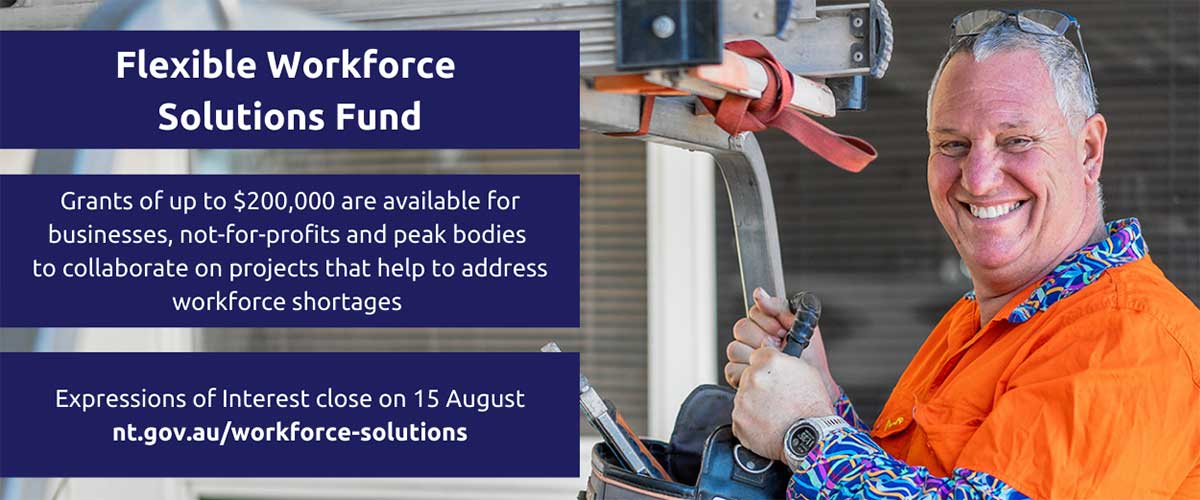Business bulletin: 11 August 2022
Global Worker Attraction campaign ramps up
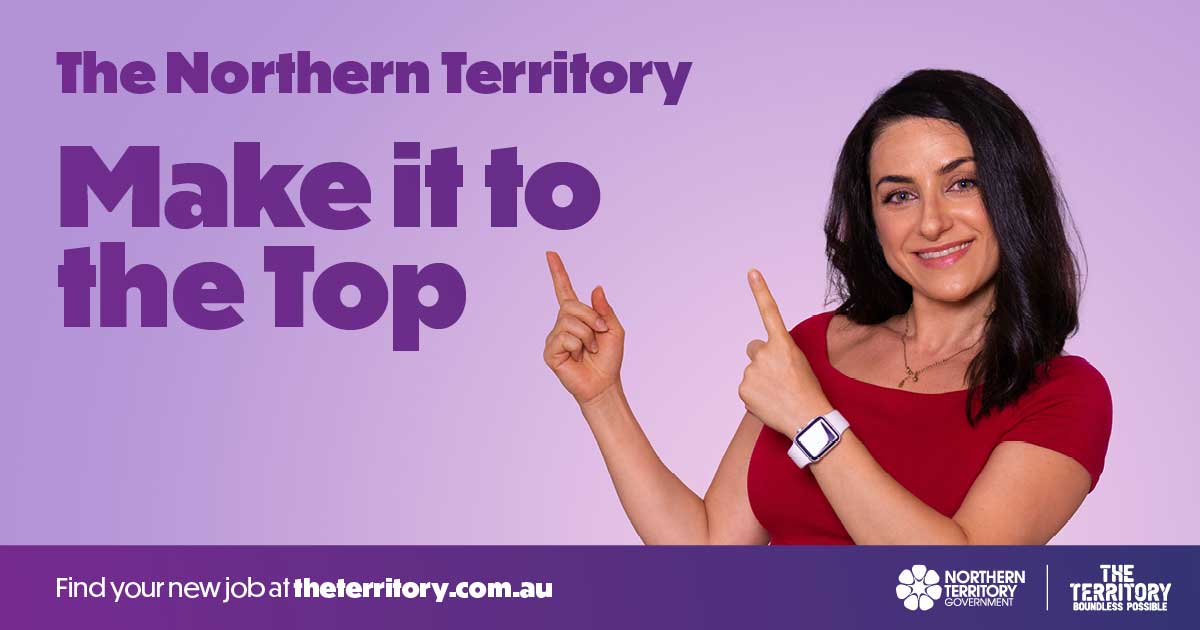
The Global Worker Attraction campaign is gearing up with phase 2 of marketing campaign kicking off, targeting Australian and overseas workers to #movetotheTerritory.
Interstate workers and overseas migrants play an important role in meeting the Territory’s workforce needs. The Territory must continue to grow local workforce capability while continuing to attract and retain the best and brightest.
Phase 1, which ran from March to July 2022 introduced the Northern Territory to a domestic and international audience. It targeted workers considering a sea change, career advancement, business opportunities or enhanced family and lifestyle options. The campaign generated more than 3,000 applications for roles in the Territory.
Phase 2 of the marketing campaign is called ‘Make it to the top’ and will run until 31 December 2022. Phase 2 takes the campaign up another notch and targets career climbers and those seeking to progress their lives personally and professionally to #movetotheTerritory.
The campaign targets skilled and semi-skilled workers aged between 18 and 45 in Australia, New Zealand, London, Singapore, Japan, South Korea, Switzerland, Italy, Vietnam, South Africa, Taiwan, Indonesia, Colombia, Brazil, Ireland and the Philippines. The campaign will run across Seek, CareerOne, Facebook and Instagram.
Territory businesses are encouraged to get involved by:
- loading their jobs onto recruitment platforms Seek and CareerOne.
- downloading assets from the worker attraction toolkit to raise awareness of job opportunities and moving to the Territory for work
- including the hashtag #movetotheTerritory on your social media posts.
To view the Global Worker Attraction campaign, go to The Territory website.
For more information, email workforceattractionnt@nt.gov.au.
New training requirement strengthens Territory’s gambling industry

All Territory hospitality workers engaged in the provision of gambling services must undertake refresher training every 3 years following the updating of the code of practice for responsible gambling.
The code aims to minimise the harms associated with loss of control gambling through the creation of responsible gambling environments. It sets out the minimum requirements that support services, Northern Territory gambling providers and their staff are to adopt to reduce the harms associated with problem gambling.
The code has been updated to facilitate better provision of information to allow patrons make informed decisions about their gambling habits and self-exclusion. It includes clearer training requirements and pathways for staff and managers.
To ensure workers, business and industry adhere to the updated code, the Northern Territory Government has partnered with Hospitality NT to develop the responsible service of gambling (RSG) refresher course.
The free online refresher course will ensure that staff are aware of the latest harm minimisation strategies that enable a safe and responsible gambling environment.
The Territory’s hospitality industry employs around 10,000 people. It traditionally relies on casual seasonal workers and working holiday makers to meet workforce needs.
The RSG refresher course will also give workers who have received their qualifications elsewhere the opportunity to undertake the Territory-specific course.
The RSG refresher course can be found on the RSG Refresher website.
To read the code of practice for responsible gambling, go to the Northern Territory Government website.
New industry takes flight
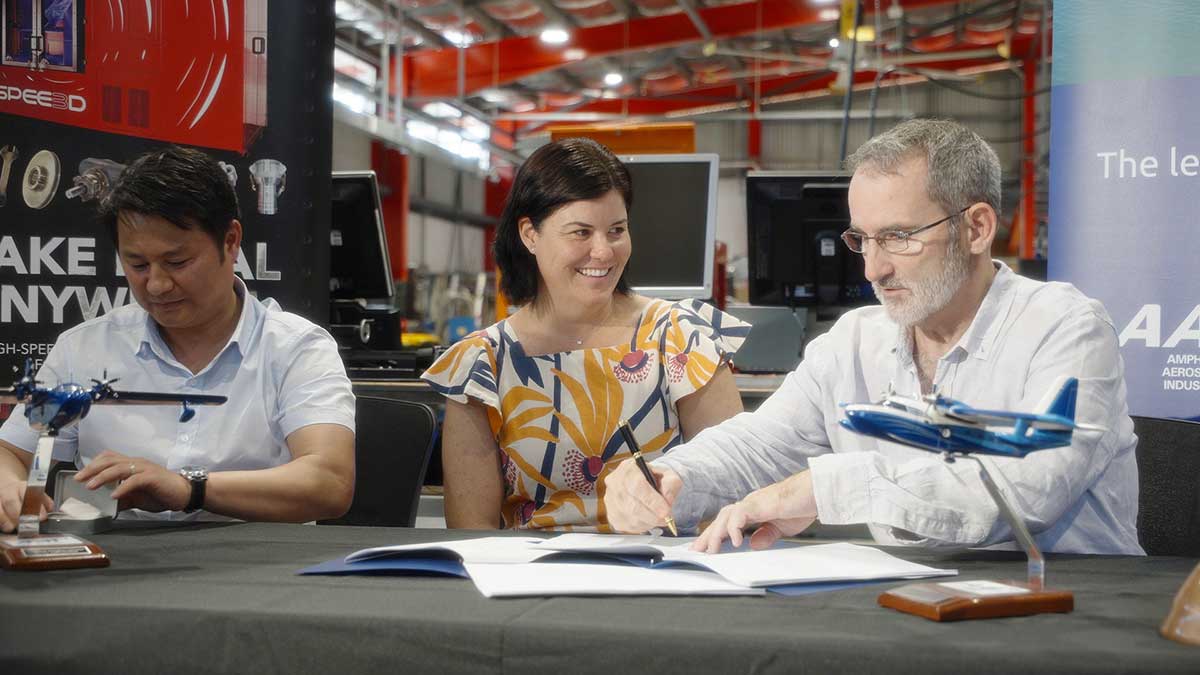
The first Albatross G-111T to be built in the Northern Territory (NT) has been purchased by Australian entrepreneur, Steve Baxter.
The purchase follows the recent signing between Amphibian Aerospace Industries (AAI), and ShinMaywa, confirming a partnership to develop an amphibian aircraft manufacturing hub at Darwin Aviation Manufacturing Precinct.
Chairman of Amphibian Aircraft Holdings Gorup, Khoa Hoang, said they were very happy that Albatross serial number 1 will go to an Australian.
“Steve Baxter is not only an entrepreneur but also an avid aviator and we are very pleased that he is our first deposit paid customer.”
Steve Baxter said the G-111T is an incredible platform that will enable flexible access to places across the globe.
“All the better it that is will be made in Australia, it is very exciting to be on this journey with Khoa and the awesome team at Amphibian Aerospace,” he said.
Manufacturing of these aircrafts in Darwin is due to commence after the modified version has been certified. The first plane is set to be completed by 2026.
Local Territory companies will benefit from manufacturing of the G-111T Albatross. The Territory Government has facilitated a collaboration agreement between AAI and 15 other signatories in the development of new Aerospace Manufacturing Precinct. The precinct is to be located at Darwin International Airport. This will position the Territory as a critical location in Australia for the aviation and advanced aerospace manufacturing sector.
Once established in the Territory, AAI will generate extensive value to the NT’s economy. The company is forecasting annual revenue of more than $100 million by the end of the decade.
Territory Science Forum launched
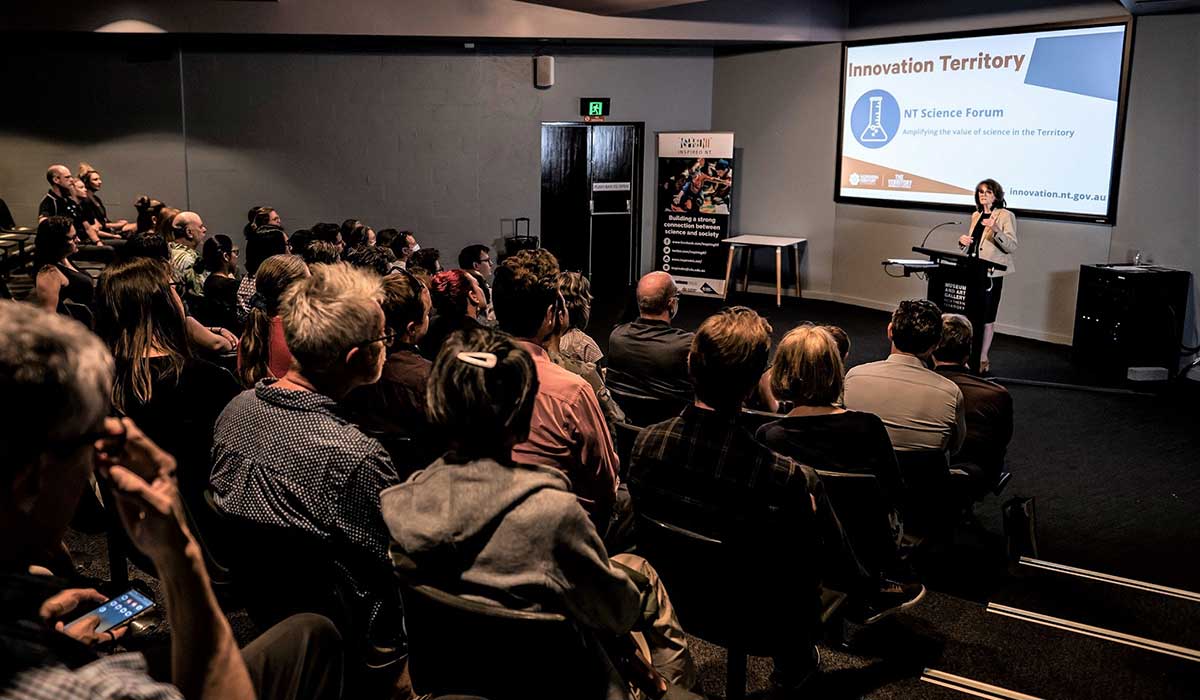
The Territory’s science community has received a boost with the recent launch of a new forum. The forum is designed to bring the private, public and academic sector together to provide better advice to key decision-makers regarding issues and opportunities for science in the Territory.
Outlined in the business innovation strategy 2.0, one of the forum’s key objectives is to amplify the value of science in the Territory. The innovation strategy prioritises science as a highly valuable industry for the Northern Territory. Science has intrinsic value, and is a driver of wealth creation across our economy, including priority sectors identified by the Territory Economic Reconstruction Commission.
To read the strategy, go to the Innovation website.
Through greater exploration of science and technology as potential business opportunities, the Territory innovation ecosystem is better positioned to contribute to a $40 billion economy by 2030. The forum is designed to support and give a voice to the science sector, while also encouraging entrepreneurial opportunities and information exchange between members.
The forum is open to interested parties from the STEM (science, technology, engineering, maths) fields across public, private and academic sectors. For more details email innovation@nt.gov.au.
If you’d like to join the NT innovation ecosystem then check out the Innovation website.
Training driving skills forward
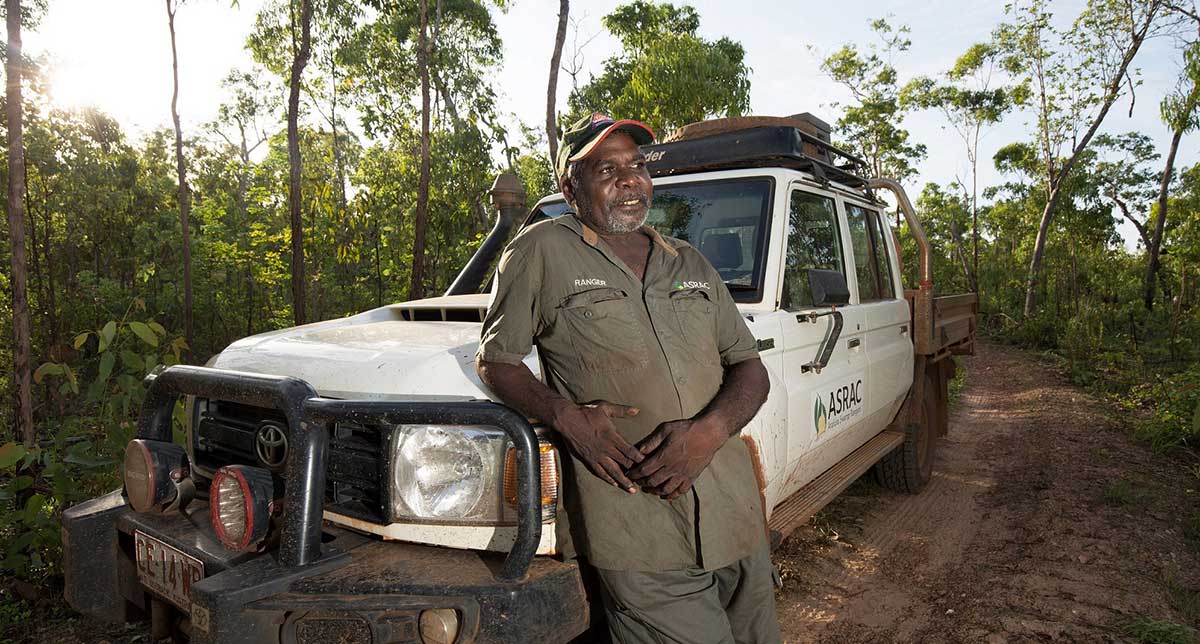
Rangers dedicated to looking after country under the direction of Traditional Owners have used a Territory Government grant to enhance their work skills, including 4WD vehicle recovery in what can be remote country.
The Arafura Swamp Rangers Aboriginal Corporation (ASRAC), which is based in Ramingining in Arnhem Land, accessed just over $40,000 in funding under the Aboriginal Responsive Skilling Grants program. The funding supported 20 Aboriginal rangers to complete a skill set from a conservation and land management training package.
ASRAC chief executive Helen Truscott said applying for the grant was simple.
“Finding funding for training can be difficult,” she said.
“When the next town is 600km away, it costs a lot to bring trainers and staff together. Sending one or 2 staff to town doesn’t have the needed reach.”
Helen said the grant enabled on Country training to ensure maximum benefits from the grant.
“Without continual training and upskilling of staff the organisation cannot grow and cannot meet its objectives,” she said.
“ASRAC performs in very remote and at times challenging situations where safety is so important.
“This training helped rangers gain skills to do their job safely, including 4WD recovery, complex 4WD operations and quad bike operations.
“By using our own equipment - quads and vehicles - in our work environments it meant rangers learned skills and techniques most relevant to their job," Helen explained.
“They learnt how to safely use the gear they need every day and how to handle situations like vehicle recovery in black mud billabongs, which are real and unique situations the rangers find themselves in.
“Training not delivered in this way could not provide this and prepare rangers adequately for their roles.”
The Aboriginal Responsive Skilling Grants program supports accredited and non-accredited training to improve work skills, open the way to better employment pathways or opportunities, and obtain nationally recognised qualifications.
Funding may cover the entire cost of training for people looking for work or up to 50% of the cost for training existing workers.
Find out more about the Aboriginal Responsive Skilling Grants, go to the Northern Territory Government website.
Give feedback about this page.
Share this page:
URL copied!
